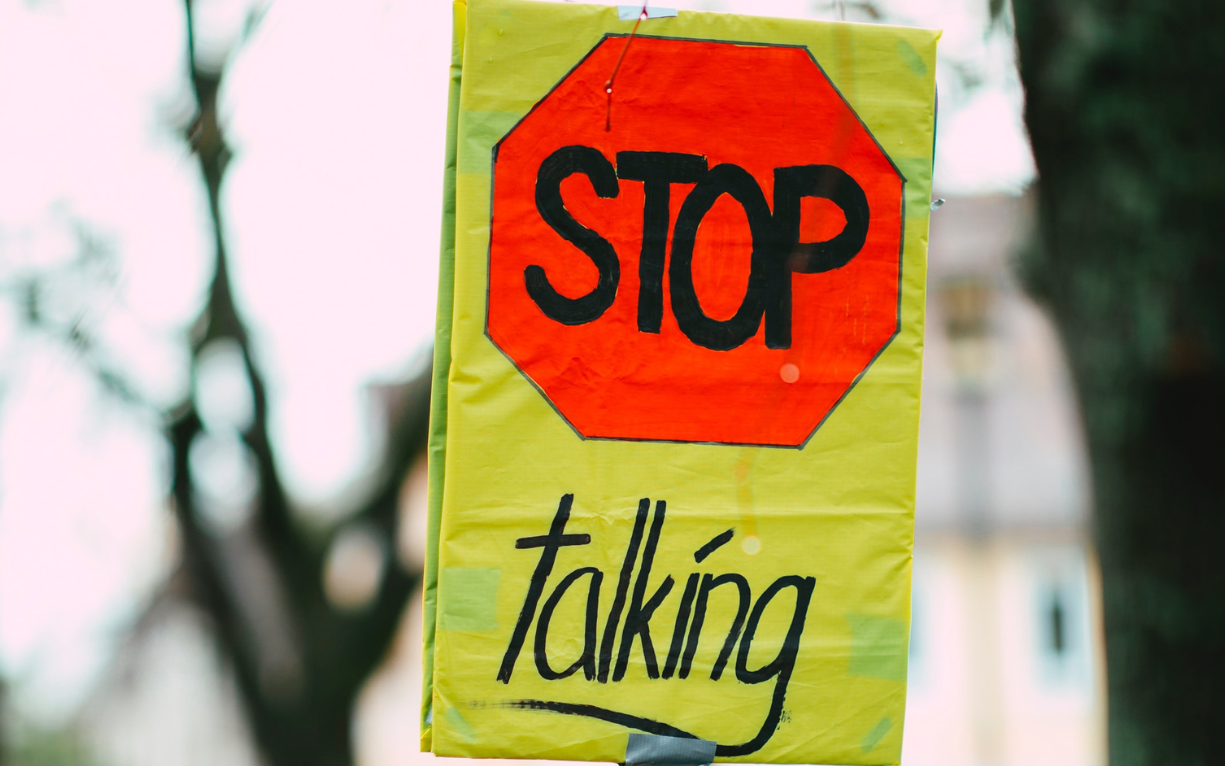What Do I Do When My Friend Stops Talking to Me?
Have you ever had someone ghost you? One day, you were great friends. And the next day, it was as if you didn't exist. How should you respond? Here are a few thoughts to consider.

Have you ever had someone ghost you? By ghosting I mean they were good friends one day and stopped talking to you the next. No argument. No cringy social media posts. No unsettled financial disputes. They just cut you out of their life.
They stopped answering calls or texts, and you no longer saw them at your favorite hang-out spots. It's as if they dropped off the face of the earth.
I've had friends do this to me on a few occasions (thankfully not recently). They'll go silent for weeks, even months. Then, after some time has passed, I'll get a text like, "Sorry, I'm just going through some stuff." And then our friendship is back to normal. If you're a pastor, you know what I'm talking about.
When I think about these scenarios, I've got mixed emotions. On one hand, I'm annoyed. I think back to some of my lower moments of depression, and the specific choices I made to reach out to others – even when that was the last thing I wanted to do. And my natural internal response to ghosters is, "Bro, life is hard. I get that. But the least you can do is answer your phone."
I share this as a person who has a natural compassion deficiency. When someone shares about something difficult they're going through, it's easy for me to channel my inner Bob Newhart and think, "Stop it!" (If you don't know what I'm talking about, this six-minute video will be well worth your time)
But the older I get, the less advice I take from Bob Newhart and the more I keep coming back to the words of the Apostle Paul in Galatians 6:2: "Bear one another's burdens." Sometimes bearing doesn't mean being physically present. But it involves accepting some distance, a stronger commitment to remote friendship, and a renewed focus on prayer.
For all sorts of reasons, sometimes others deny us the ability to be present in their lives. They hit a wall in their marriage. They fall into depression. They wrestle with intense anxiety. And in these times, it's about all they can do to put one step in front of the other. Truth be told, they're embarrassed by their ghosting response. They hate that they've made things awkward and this only heightens their shame.
Assuming you haven't been a jerk who needs to repent, if you have someone in your life who has created some distance, here are several choices you can make:
When people cut us off for no reason, it's natural to feel offended. But if this is where you're at, pause and catch your breath. Separate reality from feeling.
Your feelings say you have a right to be hurt, angry, and offended. You didn't deserve the treatment you've received.
Reality says your friend is going through a time of intense pain. And in this season, the last thing they need is a snarky comment.
On a more somber note, it might surprise you to know that April, May, and June are the highest suicide months of the year. I say this to point out that sometimes you have no idea the internal struggles people are facing. And before you fire off an emotionally charged text, it is always a good idea to pause and ask if there might be something else going on in your friend's life.
If your friend has ghosted you, it's almost certain they feel a tiny bit guilty. They expect you to be peeved the next time you both talk. And this just makes them want to push this conversation farther and farther down the road.
To avoid this trap, let them know you're with them. Shoot them a text that says something like, "Hey, I know this might be a tough time. But I want you to know I've committed several minutes a day to pray for/with you. When you need someone to talk to, I'm here for you – night or day."
This lets them off the hook. They know you're not shaming them and you're on their side.
If your friend has given you the cold shoulder, there are two poor approaches to take. The first is to lash out and the second is to treat silence with silence.
Instead, be present from a distance. Send them a gift, buy them a delivery meal, and send them an occasional encouraging text.
Also, keep in mind that your friend might not be reaching out to you for a reason. Perhaps you're like me and you're not naturally the most empathetic person. This might make you a strong friend when times are good, but not so great when times are tough.
Accept your limitations and find small ways to show you care.
When your friend is in a better frame of mind, sit down with them and let them know how their distance made you feel. Don't guilt them, but be honest. Listen and see if there are ways you might be more empathetic and offer some more helpful ways you can keep connected when the next tough season hits.
This is something that has helped Janan and me in our marriage. In the early years, when I felt discouraged, I'd just hole up and not say anything. I needed space. But Janan is just the opposite. When she has problems, she wants to talk. And so sometimes she interpreted my silence as a sign she had done something wrong.
Now, rather than make her guess, whenever I'm feeling a bit off, I'll say something like, "Janan, it's not you. I just don't feel like talking this afternoon." And she gives me space to snap out of my funk.
Have you ever had a friend ghost you? If so, how did you deal with it? Subscribe to our newsletter and leave a comment below!





